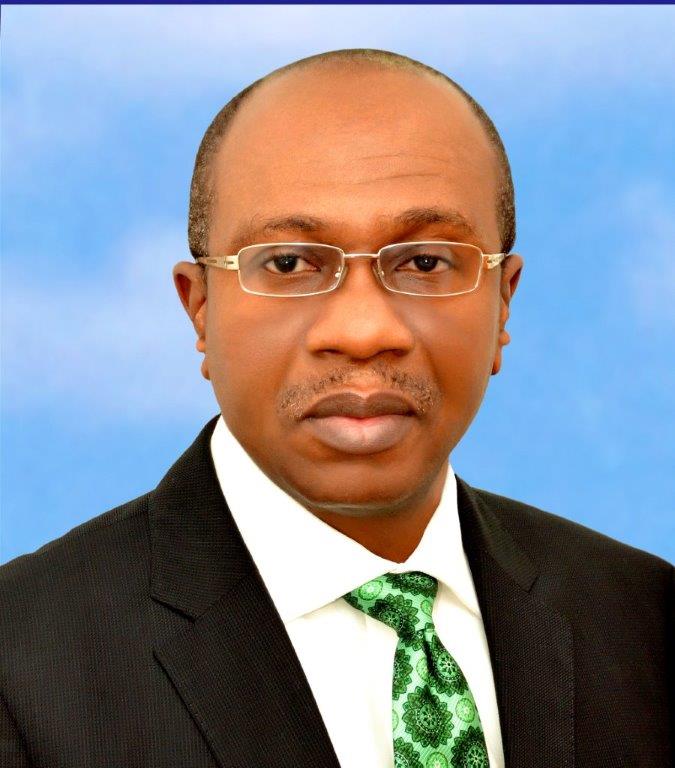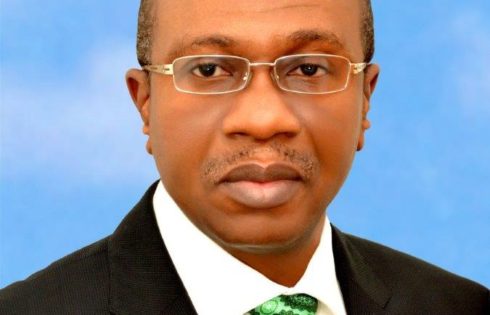
 The Central Bank of Nigeria, CBN, in June 2016 formally unveiled the much-awaited flexible foreign exchange policy that would allow the foreign exchange interbank trading window to be driven purely by market forces.
The Central Bank of Nigeria, CBN, in June 2016 formally unveiled the much-awaited flexible foreign exchange policy that would allow the foreign exchange interbank trading window to be driven purely by market forces.
The policy was designed to effectively remove controls on the naira, allowing increased dollar supply that would help strengthen the country’s weak economy.
Mr. Emefiele said at the launch that Nigeria’s foreign exchange reserves declined from about $42.8 billion in January 2014 to about $26.7 billion as of June 10, 2016, with average monthly inflows falling from about $3.2 billion to below a billion dollars per month.
Despite these outcomes, the CBN governor said the demand for foreign exchange rose significantly, from an average import bill of N148.3 billion per month in 2005, to about N917.6 billion per month in 2015.
To avoid further depletion of the reserves, Mr. Emefiele said the CBN opted to adopt policy actions to prioritize the most critical needs for foreign exchange as well as maintaining stability in the exchange rate.
The CBN sold $4.02 billion to clear the backlogs of matured foreign exchange obligations of banks as at the time of introducing this new regime.
However, Seven months down the line, the forex crisis continues to lingers amid economic recession. the CBN has continued to be the major supplier of forex to the OTC forex market, prompting experts in the financial sector propagate various suggestions to make the system better with most of them calling for further liberalizations of the forex market.
The intervention by the CBN with different concessionary rates for airline operators, petroleum marketers outside the prevailing inter bank is a developments that seem not to have resonated very well with other players in the economy especially manufacturers.
The Manufacturers Association of Nigeria, MAN, said The flexible exchange rate policy had culminated to N500 billion loss for manufacturers.
Reacting to this development, The President, Constance Shareholders Association of Nigeria, Shehu Mikail, said, the economic implications of multiple exchange rates does not allow steady economic activities, which is why a single rate is needed to normalise economic activities in the country.” When forex is not evenly sold to customers, many investors are affected.” He argued.
Mikailu posits that, “We need stable forex policies to control the system. Government must clear road side black marketers to ensure that such illegal forex markets do not exist again. In doing that, we should ensure that there are registered Bureau de Change (BDC) at the airports for travellers, and other places where individuals, importers, manufacturers as well as operators of Small and Medium Enterprises (SMEs) can easily get forex to do their businesses.”
Dr Uche Uwaleke, the Head of Banking and Finance Department, Nasarawa State University, Keffi, made the suggestion in a recent interview said that the review of the forex regime has become important, especially those items critical to the economic development of the country.
While urging that the restrictions on a number of items should remain until the country’s export base was sufficiently diversified. He scored the apex bank a pass mark on the management of the crisis.
For economist, Prof. Sheriffadeen Tella, the CBN must pursue monetary or quantitative easing approach in 2017 to revitalize the nation’s economy and solve the country’s lingering foreign exchange crisis.
Tella, Professor of Economics, Department of Economics, Olabisi Onabanjo University, Ago-Iwoye, Ogun State advocates for colour swapping of the Naira as an option to reduce speculative attack on the currency.
“The reasons are based on activities of speculators, largely those who have stockpiled Naira at home and converting same to foreign currency and for which I advocated change in or swapping of colour of N500 and N1,000 notes. India did it lately due to the same condition we have here,’’ Tella said.
The Managing Director/Chief Executive, Financial Derivatives Company Limited, Mr. Bismarck Rewane is sounded optimistic; projecting that there would be full liberalisation of the foreign exchange market accompanied with removals of controls in the near future.
In a presentation titled: “Nigeria and the new economic reality: Outlook for 2017, Rewane noted that exchange rate liberalisation, though will result to official exchange rate of N350 per dollar, it will boost business and investor sentiment.
He said, “The most likely macroeconomic scenario will be gradual a U-shaped economic recovery with early signs of rebound in manufacturing sector. GDP growth to return to positive territory: 1.2 percent. Labour productivity growth to improve to -1.6 percent from -3.5 percent. Net Foreign Direct Investment (FDI) of $1.7 billion from $1.6 billion in 2016. Inflation will moderate to 15 percent by year-end while trade balance to swing back to surplus by third quarter of 2017.”
While stakeholders continue to watch the government steps in the coming days with regards to the various perspectives on offer, manufacturer continue to clinch unto the words of the Minster of finance that claimed that there was deliberate buying and stocking of dollars to cause panic, when in the real sense, the naira should not have crashed more than N305.
At a recent appearance before members of the House of Representatives, She said the factors responsible for the naira’s fate were “irrational and emotional” reactions, resulting in unnecessary hike.
“There is nothing to justify what is happening; this difference between the official and the black market rates has no fundamentals to support it.In reality, the naira should not be affected more than the N305,” the finance minister stated.
She expressed optimism that the exchange rate hike would crash, while those responsible for the stockpiling of the dollar would lick their wounds.
Adeosun said the CBN has been mandated to scrap the damaging market.The central bank “has been directed to do this and CBN has promised to do something by putting a system in place to eliminate the black market because it’s damaging the economy.”
